#cause there was an emergency
Text

"Run"
Honestly, I really pushed myself and my limits with this drawing, cause I never draw backgrounds. This time I HAD to make the exception, cause this is another tribute piece to "The Lines We Cross" by @whisker-biscuit
Ive planned to make one more piece of that nature, since Chapter 12 had one more scene I really liked, but we'll see.
I really overworked myself with this one and I think it was worth it. Hope you like it as much as I do!
#i hope i get to make the pieces i have in mind#cause there was an emergency#you see#a whole wildfire started behind my house and we had to evacuate#so yeah it was sort of a miracle that i got to finish this drawing#i hope things get normal again and I dont have to worry about fire going on#and potentially losing my equipment#my art#fanart#sly cooper and the thievius raccoonus#sly cooper au#sly cooper#carmelita fox#carmelita montoya fox
213 notes
·
View notes
Text
Listen, you should never film strangers in public without their consent, but I swear there need to be fines or something for people who do that shit in some spaces. For example: I had to go to the ER last night, and some jerk filmed a woman who just came in and was clearly having an asthma attack. She immediately got to go back, and he was unhappy about that. Believe me, I get that it sucks having to wait when you're in pain, but you don't get to pick who deserves care when. The medical system in the US is a nightmare, and the ER could be the worst moment of someone's life. No one deserves to be recorded because some jack ass believes someone doesn't look like they need care.
This is fine to reblog. People who film strangers should be shamed if nothing else.
#ccyy talks#sorry for posting this here but I'm pissed and this shit really needs to stop#For all I know he recorded me too cause I'm young and look healthy but got to go back next#Sorry about your cough buddy but the way things work I was a more immediate emergency#1k#5k#10k#30k#this post clearly has a life of its own now#and in case someone wants to know some clarifications for common points#people in a position of authority/actively hurting someone with the intent to protect/help the person is fine#so cops doctors nurses mental health workers and educators (to name a few) who actively are abusing their power and authority? free game#this post was filming random ass people for Content(tm)#random ass people more so those in distress aren't your content and you do not know the harm you can do to someone by posting that shit#50k
51K notes
·
View notes
Text
Kickstarting the audiobook of The Lost Cause, my novel of environmental hope
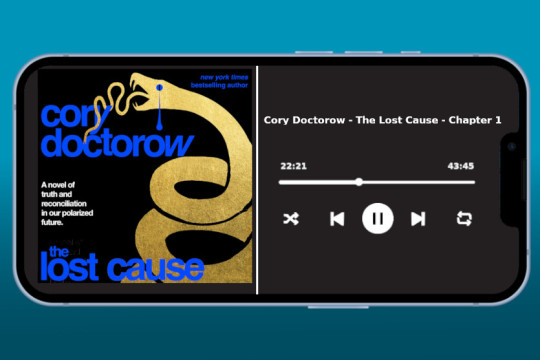
Tonight (October 2), I'm in Boise to host an event with VE Schwab. On October 7–8, I'm in Milan to keynote Wired Nextfest.

The Lost Cause is my next novel. It's about the climate emergency. It's hopeful. Library Journal called it "a message hope in a near-future that looks increasingly bleak." As with every other one of my books Amazon refuses to sell the audiobook, so I made my own, and I'm pre-selling it on Kickstarter:
https://www.kickstarter.com/projects/doctorow/the-lost-cause-a-novel-of-climate-and-hope
That's a lot to unpack, I know. So many questions! Including this one: "How is it that I have another book out in 2023?" Because this is my third book this year. Short answer: I write when I'm anxious, so I came out of lockdown with nine books. Nine!
Hope and writing are closely related activities. Hope (the belief that you can make things better) is nothing so cheap and fatalistic as optimism (the belief that things will improve no matter what you do). The Lost Cause is full of people who are full of hope.
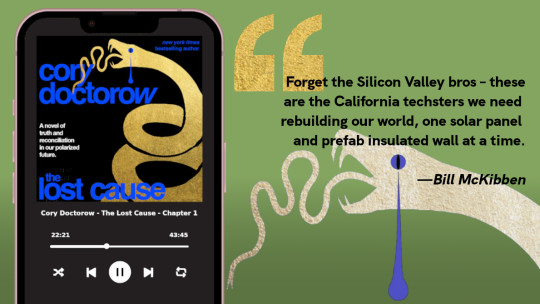
The action begins a full generation after the Hail Mary passage of the Green New Deal, and the people who grew up fighting the climate emergency (rather than sitting hopelessly by while the powers that be insisted that nothing could or should be done) have a name for themselves: they call themselves "the first generation in a century that doesn't fear the future."
I fear the future. Unchecked corporate power has us barreling over a cliff's edge and all the one-percent has to say is, "Well, it's too late to swerve now, what if the bus rolls and someone breaks a leg? Don't worry, we'll just keep speeding up and leap the gorge":
https://locusmag.com/2022/07/cory-doctorow-the-swerve/
That unchecked corporate power has no better avatar than Amazon, one of the tech monopolies that has converted the old, good internet into "five giant websites, each filled with screenshots of the other four":
https://twitter.com/tveastman/status/1069674780826071040
Amazon maintains a near-total grip over print and ebooks, but when it comes to audiobooks, that control is total. The company's Audible division has captured more than 90% of the market, and it abuses that dominance to cram Digital Rights Management onto every book it sells, even if the author doesn't want it:
https://pluralistic.net/2022/07/25/can-you-hear-me-now/#acx-ripoff
I wrote a whole-ass book about this and it came out less than a month ago; it's called The Internet Con and it lays out an audacious plan to halt the internet's enshittification and throw it into reverse:
http://www.seizethemeansofcomputation.org/
The tldr is this: when an audiobook is wrapped in Amazon's DRM, only Amazon can legally remove it. That means that every book I sell you on Audible is a book you have to throw away if you ever break up with Amazon, and Amazon can use the fact that it's hold you hostage to screw me – and every other author – over.
As I said last time this came up:
Fuck that sideways.
With a brick.

My books are sold without DRM, so you can play them in any app and do anything copyright permits, and that means Amazon won't carry them, and that means my publishers don't want to pay to produce them, and that means I produce them myself, and then I make the (significant) costs back by selling them on Kickstarter.
And you know what? It works. Readers don't want DRM. I mean, duh. No one woke up this morning and said, "Dammit, why won't someone sell me a product that lets me do less with my books?" I sell boatloads" of books through these crowdfunding campaigns. I sold so many copies of my last book, *The Internet Con, that they sold out the initial print run in two weeks (don't worry, they held back stock for my upcoming events).
But beyond that, I think there's another reason my readers keep coming back, even though I wrote a genuinely stupid number of books while working through lockdown anxiety while the wildfires raged and ashes sifted down out of the sky and settled on my laptop as I lay in my backyard hammock, pounding my keyboard.
(I went through two keyboards during lockdown. Thankfully, I bought a user-serviceable laptop from Framework and fixed it myself both times, in a matter of minutes. No, no one pays me to mention this, but hot damn is it cool.)
https://pluralistic.net/2022/11/13/graceful-failure/#frame
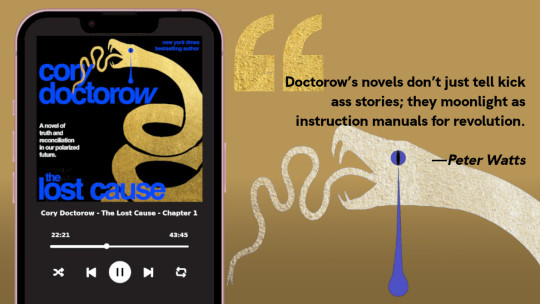
The reason readers come back to my books is that they're full of hope. In the same way that writing lets me feel like I'm not a passenger in life, but rather, someone with a say in my destination, the books that I write are full of practical ways and dramatic scenes in which other people seize the means of computation, the reins of power or their own destinies.
The protagonist of The Lost Cause is Brooks Palazzo, a high-school senior in Burbank whose parents were part of the original cohort of volunteers who kicked off the global transformation, and left him an orphan when they succumbed to one of the zoonotic plagues that arise every time another habitat is destroyed.
Brooks grew up knowing what his life would be: the work of repair and care, which millions of young people are doing. Relocating entire cities off endangered coastlines and floodplains, or out of fire-zones. Fighting floods and fires. Caring for tens of millions of refugees for whom the change came too late.
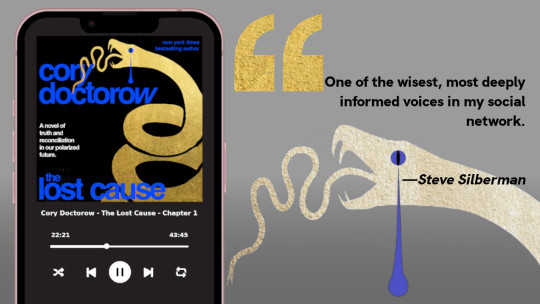
But with every revolution comes a counter-revolution. The losers of a just war don't dig holes, climb inside and pull the dirt down on top of themselves. Two groups of reactionaries – seagoing anarcho-capitalist billionaire wreckers and seething white nationalist militias – have formed an alliance.
They've already gotten their champion into the White House. Next up: dismantling every cause for hope Brooks and his friends have, and bringing back the fear.
That's the setup for a novel about solidarity, care, library socialism, and snatching victory from defeat's jaws. Writing it help keep me sane during the lockdown, and when it came time to record the audiobook, I spent a lot of time thinking about who could read it. I've had some great narrators: Wil Wheaton, @neil-gaiman, Amber Benson, Bronson Pinchot, and more.
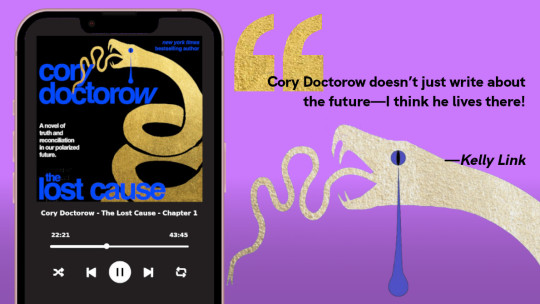
I record my audiobooks with Skyboat Media, a brilliant studio near my place in LA. Back in August, I spent a week in their recording booth – "The Tardis" – doing something I'd never tried before: I recorded a whole audiobook, with directorial supervision: The Internet Con:
https://transactions.sendowl.com/products/78992826/DEA0CE12/purchase
When it was done, the director – audiobook legend Gabrielle de Cuir – sat me down and said, "Look, I've never said this to an author before, but I think you should read The Lost Cause. I don't direct anyone anymore except for Wil Wheaton and LeVar Burton, but I would direct you on this one."
I was immensely flattered – and very nervous. Reading The Internet Con was one thing – the book is built around the speeches I've been giving for 20 years and I knew I could sell those lines – but The Lost Cause is a novel, with a whole cast of characters. Could I do it?
Reader, I did it. I just listened to the proofs last week and:
It.
Came.
Out.
Great.
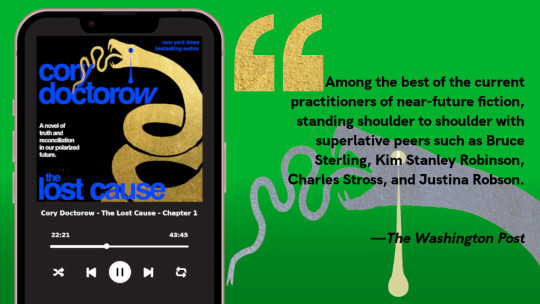
The Lost Cause goes on sale on November 14th, and I'll be selling this audiobook I made everywhere audiobooks are sold – except for the stores that require DRM, nonconsensually shackling readers and writers to their platforms. So you'll be able to get it on Libro.fm, downpour.com, even Google Play – but not Audible, Apple Books, or Audiobooks.com.
But in addition to those worthy retailers, I will be sending out thousands – and thousands! – of audiobook to my Kickstarter backers on the on-sale date, either as a folder of DRM-free MP3s, or as a download code for Libro.fm, to make things easy for people who don't want to have to figure out how to sideload an audiobook into a standalone app.
And, of course, the mobile duopoly have made this kind of sideloading exponentially harder over the past decade, though far be it from me to connect this with their policy of charging 30% commissions on everything sold through an app, a commission they don't receive if you get your files on the web and load 'em yourself:
https://www.kickstarter.com/projects/doctorow/red-team-blues-another-audiobook-that-amazon-wont-sell/posts/3788112
As with my previous Kickstarters, I'm also selling ebooks and hardcovers – signed or unsigned, and this time I've found a great partner to fulfill EU orders from within the EU, so backers won't have to pay VAT and customs charges. The wonderful Otherland – who have hosted me on my last two trips to Berlin – are going to manage that shipping for me:
https://www.otherland-berlin.de/en/home.html
Kim Stanley Robinson read the book and said, "Along with the rush of adrenaline I felt a solid surge of hope. May it go like this." That's just about the perfect quote, because the book is a ride. It's not just a kumbaya tale of a better world that is possible: it's a post-cyberpunk novel of high-tech guerrilla and meme warfare, climate tech and bad climate tech, wildcat prefab urban infill, and far-right militamen who adapt to a ban on assault-rifles by switching to super-soakers full of hydrochloric acid.
It's a book about struggle, hope in the darkness, and a way through this rotten moment. It's a book that dares to imagine that things might get worse but also better. This is a curious emotional melange, but it's one that I'm increasingly feeling these days.
Like, Amazon, that giant bully, whose blockade on DRM-free audiobooks cost me enough money to pay off my mortgage and put my kid through university (according to my agent)? The incredible Lina Khan brought a long-overdue antitrust case against Amazon while her rockstar DoJ counterpart, Jonathan Kanter, is dragging Google through the courts.
The EU is taking on Apple, and French cops are kicking down Nvidia's doors and grabbing their files, looking to build another antitrust case for monopolizing GPUs. The writers won their strike and Joe Biden walked the picket-line with the UAW, the first president in history to join striking workers:
https://doctorow.medium.com/joe-biden-is-headed-to-a-uaw-picket-line-in-detroit-f80bd0b372ab?sk=f3abdfd3f26d2f615ad9d2f1839bcc07

Solar is now our cheapest energy source, which is wild, because if we could only capture 0.4% of the solar energy that makes it through the atmosphere, we could give everyone alive the same energy budget as Canadians (who have American lifestyles but higher heating bills). As Deb Chachra writes in her forthcoming How Infrastructure Works (my review pending): we get a fresh supply of energy every time the sun rises and we only get new materials when a comet survives atmospheric entry, but we treat energy as scarce and throw away our materials after a single use:
https://www.penguinrandomhouse.com/books/612711/how-infrastructure-works-by-deb-chachra/
Anything that can't go on forever will eventually stop. We have shot past many of our planetary boundaries and there are waves of climate crises in our future, but they don't have to be climate disasters. That's up to us – it'll depend on whether we come together to save ourselves and each other, or tear ourselves apart.
The Lost Cause dares to imagine what it might be like if we do the former. We don't live in a post-enshittification world yet, but we could. With these indie audiobooks, I've found a way to treat the terminal enshittification of the Amazon monopoly as damage and route around it. I hope you'll back the Kickstarter, fight enshittification, inject some hope into your reading, and enjoy a kickass adventure novel in the process:
https://www.kickstarter.com/projects/doctorow/the-lost-cause-a-novel-of-climate-and-hope

If you'd like an essay-formatted version of this post to read or share, here's a link to it on pluralistic.net, my surveillance-free, ad-free, tracker-free blog:
https://pluralistic.net/2023/10/02/the-lost-cause/#the-first-generation-that-doesnt-fear-the-future
#pluralistic#audiobooks#the lost cause#crowdfunding#kickstarter#spoken word#climate#climate emergency#monopoly#drm#amazon#audible#skyboat#science fiction#hope not optimism
2K notes
·
View notes
Text



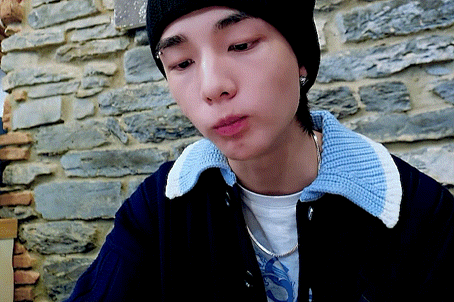





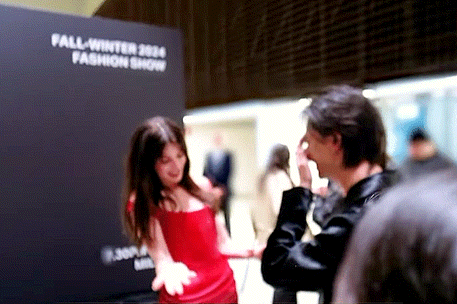
hyun.e’s holiday ep. 8
#hyunjin#skz#stray kids#bystay#staydaily#gifs#anne hathaway#donatella versace#EEEEEEEEK im about to blow up the emergency line cause the sos situation is very real rn!!!!!!!!
594 notes
·
View notes
Text

Good morning 🍊
#the concern#oc art#artists on tumblr#happy new year all 🎉 here's to a good 2024#also hello new people from the selkie comic 👋 this is ajaya and she's one of the half-sisters of the human (amir) from that comic#amir has a number of half-siblings unknown to him because his father is a 250-year old wizard seeking permanent immortality#and has fathered a ton of children in the meantime to further his ends#anyway in my motw campaign ajaya causes problems on purpose but also has extremely useful gossip so my players let her stay#in that whenever I want to give my players an emergency plot hook she shows up with a mimosa like OH BTW HAVE YOU HEARD--#but she also did very much make a ghost battery go dangerously haywire and also steal the iron from an already iron deficient vampire
326 notes
·
View notes
Text
Hello! Im opening emergency holiday commissions!!!
I want to get my friends and family gifts this year, and have been trying to get back into the rythem of comms, so what better way than to start by doing a trial run!
For these, I’ll only be doing busts, and can choose between a Messy Sketch or a Refined Sketch (which includes simple monochrome color for refined sketches, and more complex coloring can be negotiated)

I (currently) have 5 slots open, and take payment through PayPal or Venmo!!
#art#digital art#my art#ozias draws a thing#fanart#my artwork#character drawing#commissions info#art commissions#commissions#bust commission#art commisions#commission#my commissions#emergency commissions#tf2#tf2 medic#tf2 demoman#<- only tagging those guys ‘cause I used them as examples :3
251 notes
·
View notes
Photo

Bonus Slow Mo under the cut:

#Eyes on fire#Your spine is ablaze#Felling any foe with my gaze#And just in time#In the right place#Steadily emerging with grace#käärijä#jere pöyhönen#bojan cvjetićanin#bojan#joker out#esc2023#eurovision#whether it was just surprise or something else that caused bojan to have this reaction doesnt really matter#because its such a genuine and wholesome reaction#can't take his eyes off jere
567 notes
·
View notes
Text
I need everyone to know that speedsters are allergic to nanobots.
No, seriously. They're allergic to nanobots.
Speedsters have absolutely insane metabolisms, which means that they have an absolutely insane immune system. They don't get sick. Ever. Their immune system works at warp speed and takes out germs the second they enter their body. Call germs 'the Rogues' because they're getting tackled by super speedy blurs before they can even think about causing issues.
Okay, so they have a great immune system and don't get sick ever. What does this have to do with nanobots?
Great question! When nanobots are injected into a speedster's body their immune system sees them as a threat. Only problem? It doesn't matter how fast or efficient their immune system is, their body can't destroy a bunch of tiny metal robots.
Because their bodies can't fight off the nanobots they start to display typical cold/flu symptoms instead. Vomiting, fever, runny nose, coughing, being tired, ect. The nanobots aren't causing this reaction. Their own immune system causes this reaction. The fever is the bodies attempt to kill off the 'germs'. The vomiting, runny nose and coughing is the body's attempt to expel the 'germs'. They feel tired because their body is putting everything into fighting off the 'infection'.
In a normal person the nanobots wouldn't even be an issue because they'd be able to avoid detection. They can't avoid detection in a speedster body because their immune systems are dialled up to 500 out of 10.
As a result you get instances like this:
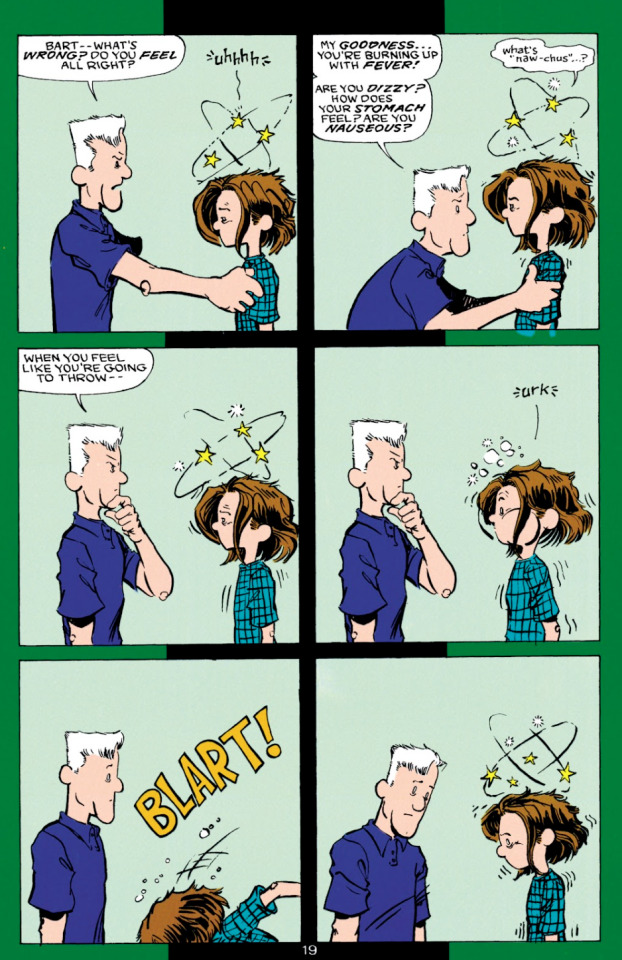

(Inertia had injected Bart with nanobots and Bart had a reaction)
Just an FYI for people because this is extremely fun and versatile information. Especially because none of the speedsters are really aware of this and it doesn't kick in right away. I could totally see a situation where a mission requires nanobot injections and mid mission the speedster goes down out of nowhere. It's also great if you want to do a stereotypical sick fic or something and want to get around that pesky speedster immunity.
Anyway, it's fun information so I thought I'd share
#anyone watch that episode of TT where all the titans are injected with nanobots that'll kill them if robin doesn't work with slade?#and everyone is all 'WHY HAS ROBIN BETRAYED US?!?'#anyway im just saying that if Wally was there he would be on the ground delirious and vomiting#which#i don't know if it makes the situation better because the team would be looking into why hes sick#or if it makes it worse because wallys out of commission#but its 10/10 either way#i just want a yj mission where tims like 'hey we are going to space so here are gps nanobots'#and then like three hours later Bart is burning up delirious and vomiting#and tim (who knows that speedsters ONLY show symptoms of sickness if they have the plague or have been poisoned or something) FREAKS OUT#throws him into quarantine. stops the mission. gets an emergency surgery room ready. has doctors on the line.#Kon goes into quarantine with him cause hes 'AN ALIEN AND CAN'T GET SICK FUCK YOU TIM'#meanwhile hes like#completely fine#he just has flu symptoms#dc#dc comics#the flash#impulse#kid flash#wally west#bart allen#barry allen#speedsters
2K notes
·
View notes
Text
Dpxdc idea 176
Danny never expected to see Tim drake aka Red Robin ever again. Especially not when he just escaped the Giw covered in wounds and a Y he’d never like to see again.
Tim never thought he’d see Danny again, according to Danny only one of him could ever exist. The same one they were both certain was from a different dimension. They had searched up the justice league and Bruce Wayne from Danny’s bedroom. A dimension Danny couldn’t leave without risk of the GIW causing a war in the realm.
He had only ever met Danny after one of his opponents managed to shove him through a natural portal. He of course managed to modify his weapons to work in the infinite realms. Mortal safe food not to easy to find. It was mere chance he had run into phantom. From there he ended up waiting in Danny’s supposed different dimension until frostbite was free to let them use the infinite map to get him back home.
He really needed to look into the GIW of that was the case. First he had to deal with getting Danny medical attention.
#dpxdc#danny and tim are friends#Tim had been in the realm like two weeks#he had gone through his emergency rations#modified his tech and batarangs#his graving hook could infact touch the ground. just like how he coated his boots#Danny jusy happened to run into him#once the realm claimed Danny. only one Danny. could exist#it’d cause issues otherwise#Danny just wasn’t expecting to see Tim#Tim did his own research#he couldn’t find anything about the Giw#amity info block#once Tim knows it’s an actual organization#well he has a whole organization to expose now#implied vivisection#implied dissection#the map brought Tim back to the exact moment he was pushed through#he didn’t tell anyone he spent weeks there#dpxdc prompt#dpxdc crossover
110 notes
·
View notes
Text
imagining the story from pei ming's perspective is rlly funny i think. this god from all that time ago ascends again (you were there for the first two times) and immediately waltzes into a situation that fucks something up for your descendant (putting both of your reputations on the line, messing up how hard your descendant worked to become a god and how hard you worked to ensure that he would have that chance) and then refuses to let you smooth the situation out and on TOP of that your friend's little sister (who hates you and who you are trying to look out for by request of your friend) is on your case about it too. so you've gotta work all that out and then like. you chill for a little bit (still kind of upset about your descendant) until your friend undergoes a heavenly calamity. and then in the space of like A Day the god from earlier shows up again with a fucking ghost king, your friend dies, the little sister you're supposed to be looking out for disappears, and everything just kinda goes to shit. so you're like. grieving. trying to process everything. until your OTHER close friend goes off the fucking rails with the spirit of that guy she murdered, and then you get called out to the spooky ghost mountain where you're confronted with the girl whose death YOU were essentially responsible for and have never really come to terms with, and then like. you just kind of hang out with these gay people until everything resolves itself. fight some ghosts. fight the heavenly emperor. get your friend to stop being evil for a little while so she can fix the filing systems. and then you just have to keep being the god of love i guess
#characters who are so related and yet so unrelated to the story my beloveds#is he really necessary to the story. no! he's so essential to me though#nobody talks about the tragedy of the three tumors... i know it's cause they're awful but c'mon guys...#these three people who only have each other... pei ming losing both of them one after another in their own way...#i think he's probably pretty chill about ling wen being evil. i don't remember how he responds but i don't think he's that worried.#but still. that's two for two on the 'people i care about getting fucked up somehow' list#and then the kid that you're supposed to be emergency older brother to fucking DISAPPEARS.#so you can't even follow through on your promise to your dead friend...#shaking my computer. do you all understand how i feel#pei ming posting tonight. so many thoughts but so little expressed in the pei ming posting#too sleempy... will return to thoughts later#i am going to become the pei ming poster of all time. just watch me#talking#tgcf#pei ming#tian guan ci fu
216 notes
·
View notes
Text
Help me stay afloat while looking for work!
Hi folks! It sucks to be asking this, but I really could use some help with paying some bills while I struggle to look for a job. I've been looking for work for months, but my options are quite limited in the new area I'm living in, but I have weekly medical bills to pay for therapy if I wanna stay sane through all of this. All I need is a bit of help with copayments, which aren't that high, but I hit the red, so I don't even have that.
I'm trying to get commissions set up to try and make a bit of extra cash on the side, but I've been really stressed out about this whole situation, making it really hard to focus on getting that done. If you could spare even a few bucks, I'd be so grateful. I'll even offer out some sketches and such if you want something while I'm still figuring out my proper commission stuff. Thank you so much to the folks who have already helped out, I'm forever grateful to y'all 💙💙
Venmo: EH1220
Ko-Fi: Link
Paypal: Link
#Eli Speaks#donation#medical#emergency commissions#i really hate asking this#but im at my wits end#family was only really able to help so much cause they have money issues of their own#so id really appreciate the help if anyone can#also just a heads up that im about to be busy for next hour and a half or so#so if you do message me#it may take a few for me to answer#thanks everyone 💙💙
256 notes
·
View notes
Text

scooby doobie doooo
#scooby doo#scooby doo redesign#my art#digital art#scooby gang#scooby doo fanart#daphne blake#velma dinkley#fred jones#shaggy rogers#japanese uniform style#scooby has an emergency helmet cause everyone else got more accessories#he is a very anxious pup after all
793 notes
·
View notes
Text
Insurance companies are making climate risk worse
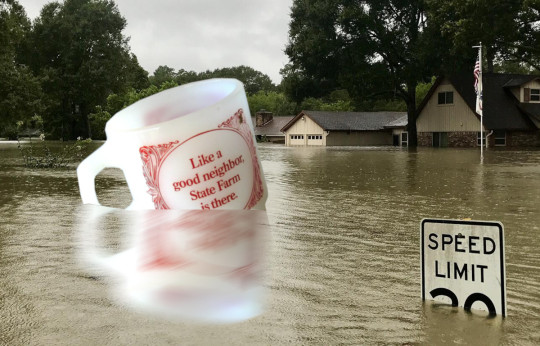
Tomorrow (November 29), I'm at NYC's Strand Books with my novel The Lost Cause, a solarpunk tale of hope and danger that Rebecca Solnit called "completely delightful."

Conservatives may deride the "reality-based community" as a drag on progress and commercial expansion, but even the most noxious pump-and-dump capitalism is supposed to remain tethered to reality by two unbreakable fetters: auditing and insurance:
https://en.wikipedia.org/wiki/Reality-based_community
No matter how much you value profit over ethics or human thriving, you still need honest books – even if you never show those books to the taxman or the marks. Even an outright scammer needs to know what's coming in and what's going out so they don't get caught in a liquidity trap (that is, "broke"), or overleveraged ("broke," again) exposed to market changes (you guessed it: "broke").
Unfortunately for capitalism, auditing is on its deathbed. The market is sewn up by the wildly corrupt and conflicted Big Four accounting firms that are the very definition of too big to fail/too big to jail. They keep cooking books on behalf of management to the detriment of investors. These double-entry fabrications conceal rot in giant, structurally important firms until they implode spectacularly and suddenly, leaving workers, suppliers, customers and investors in a state of utter higgeldy-piggeldy:
https://pluralistic.net/2022/11/29/great-andersens-ghost/#mene-mene-bezzle
In helping corporations defraud institutional investors, auditors are facilitating mass scale millionaire-on-billionaire violence, and while that may seem like the kind of fight where you're happy to see either party lose, there are inevitably a lot of noncombatants in the blast radius. Since the Enron collapse, the entire accounting sector has turned to quicksand, which is a big deal, given that it's what industrial capitalism's foundations are anchored to. There's a reason my last novel was a thriller about forensic accounting and Big Tech:
https://us.macmillan.com/books/9781250865847/red-team-blues
But accounting isn't the only bedrock that's been reduced to slurry here in capitalism's end-times. The insurance sector is meant to be an unshakably rational enterprise, imposing discipline on the rest of the economy. Sure, your company can do something stupid and reckless, but the insurance bill will be stonking, sufficient to consume the expected additional profits.
But the crash of 2008 made it clear that the largest insurance companies in the world were capable of the same wishful thinking, motivated reasoning, and short-termism that they were supposed to prevent in every other business. Without AIG – one of the largest insurers in the world – there would have been no Great Financial Crisis. The company knowingly underwrote hundreds of billions of dollars in junk bonds dressed up as AAA debt, and required a $180b bailout.
Still, many of us have nursed an ember of hope that the insurance sector would spur Big Finance and its pocket governments into taking the climate emergency seriously. When rising seas and wildfires and zoonotic plagues and famines and rolling refugee crises make cities, businesses, and homes uninsurable risks, then insurers will stop writing policies and the doom will become undeniable. Money talks, bullshit walks.
But while insurers have begun to withdraw from the most climate-endangered places (or crank up premiums), the net effect is to decrease climate resilience and increase risk, creating a "climate risk doom loop" that Advait Arun lays out brilliantly for Phenomenal World:
https://www.phenomenalworld.org/analysis/the-doom-loop/
Part of the problem is political: as people move into high-risk areas (flood-prone coastal cities, fire-threatened urban-wildlife interfaces), politicians are pulling out all the stops to keep insurers from disinvesting in these high-risk zones. They're loosening insurance regs, subsidizing policies, and imposing "disaster risk fees" on everyone in the region.
But the insurance companies themselves are simply not responding aggressively enough to the rising risk. Climate risk is correlated, after all: when everyone in a region is at flood risk, then everyone will be making a claim on the insurance company when the waters come. The insurance trick of spreading risk only works if the risks to everyone in that spread aren't correlated.
Perversely, insurance companies are heavily invested in fossil fuel companies, these being reliable money-spinners where an insurer can park and grow your premiums, on the assumption that most of the people in the risk pool won't file claims at the same time. But those same fossil-fuel assets produce the very correlated risk that could bring down the whole system.
The system is in trouble. US claims from "natural disasters" are topping $100b/year – up from $4.6b in 2000. Home insurance premiums are up (21%!), but it's not enough, especially in drowning Florida and Texas (which is also both roasting and freezing):
https://grist.org/economics/as-climate-risks-mount-the-insurance-safety-net-is-collapsing/
Insurers who put premiums up to cover this new risk run into a paradox: the higher premiums get, the more risk-tolerant customers get. When flood insurance is cheap, lots of homeowners will stump up for it and create a big, uncorrelated risk-pool. When premiums skyrocket, the only people who buy flood policies are homeowners who are dead certain their house is gonna get flooded out and soon. Now you have a risk pool consisting solely of highly correlated, high risk homes. The technical term for this in the insurance trade is: "bad."
But it gets worse: people who decide not to buy policies as prices go up may be doing their own "motivated reasoning" and "mispricing their risk." That is, they may decide, "If I can't afford to move, and I can't afford to sell my house because it's in a flood-zone, and I can't afford insurance, I guess that means I'm going to live here and be uninsured and hope for the best."
This is also bad. The amount of uninsured losses from US climate disaster "dwarfs" insured losses:
https://www.reuters.com/business/environment/hurricanes-floods-bring-120-billion-insurance-losses-2022-2023-01-09/
Here's the doom-loop in a nutshell:
As carbon emissions continue to accumulate, more people are put at risk of climate disaster, while the damages from those disasters intensifies. Vulnerability will drive disinvestment, which in turn exacerbates vulnerability.
Also: the browner and poorer you are, the worse you have it: you are impacted "first and worst":
https://www.climaterealityproject.org/frontline-fenceline-communities
As Arun writes, "Tinkering with insurance markets will not solve their real issues—we must patch the gaping holes in the financial system itself." We have to end the loop that sees the poorest places least insured, and the loss of insurance leading to abandonment by people with money and agency, which zeroes out the budget for climate remediation and resiliency where it is most needed.
The insurance sector is part of the finance industry, and it is disinvesting in climate-endagered places and instead doubling down on its bets on fossil fuels. We can't rely on the insurance sector to discipline other industries by generating "price signals" about the true underlying climate risk. And insurance doesn't just invest in fossil fuels – they're also a major buyer of municipal and state bonds, which means they're part of the "bond vigilante" investors whose decisions constrain the ability of cities to raise and spend money for climate remediation.
When American cities, territories and regions can't float bonds, they historically get taken over and handed to an unelected "control board" who represents distant creditors, not citizens. This is especially true when the people who live in those places are Black or brown – think Puerto Rico or Detroit or Flint. These control board administrators make creditors whole by tearing the people apart.
This is the real doom loop: insurers pull out of poor places threatened by climate disasters. They invest in the fossil fuels that worsen those disasters. They join with bond vigilantes to force disinvestment from infrastructure maintenance and resiliency in those places. Then, the next climate disaster creates more uninsured losses. Lather, rinse, repeat.
Finance and insurance are betting heavily on climate risk modeling – not to avert this crisis, but to ensure that their finances remain intact though it. What's more, it won't work. As climate effects get bigger, they get less predictable – and harder to avoid. The point of insurance is spreading risk, not reducing it. We shouldn't and can't rely on insurance creating price-signals to reduce our climate risk.
But the climate doom-loop can be put in reverse – not by market spending, but by public spending. As Arun writes, we need to create "a global investment architecture that is safe for spending":
https://tanjasail.wordpress.com/2023/10/06/a-world-safe-for-spending/
Public investment in emissions reduction and resiliency can offset climate risk, by reducing future global warming and by making places better prepared to endure the weather and other events that are locked in by past emissions. A just transition will "loosen liquidity constraints on investment in communities made vulnerable by the financial system."
Austerity is a bad investment strategy. Failure to maintain and improve infrastructure doesn't just shift costs into the future, it increases those costs far in excess of any rational discount based on the time value of money. Public institutions should discipline markets, not the other way around. Don't give Wall Street a veto over our climate spending. A National Investment Authority could subordinate markets to human thriving:
https://democracyjournal.org/arguments/industrial-policy-requires-public-not-just-private-equity/
Insurance need not be pitted against human survival. Saving the cities and regions whose bonds are held by insurance companies is good for those companies: "Breaking the climate risk doom loop is the best disaster insurance policy money can buy."
I found Arun's work to be especially bracing because of the book I'm touring now, The Lost Cause, a solarpunk novel set in a world in which vast public investment is being made to address the climate emergency that is everywhere and all at once:
https://us.macmillan.com/books/9781250865939/the-lost-cause
There is something profoundly hopeful about the belief that we can do something about these foreseeable disasters – rather than remaining frozen in place until the disaster is upon us and it's too late. As Rebecca Solnit says, inhabiting this place in your imagination is "Completely delightful. Neither utopian nor dystopian, it portrays life in SoCal in a future woven from our successes (Green New Deal!), failures (climate chaos anyway), and unresolved conflicts (old MAGA dudes). I loved it."

If you'd like an essay-formatted version of this post to read or share, here's a link to it on pluralistic.net, my surveillance-free, ad-free, tracker-free blog:
https://pluralistic.net/2023/11/28/re-re-reinsurance/#useless-price-signals
#pluralistic#doom loop#insurance#insuretech#climate#climate risk#climate emergency#the lost cause#market forces#risk management#price signals#control boards#decarbonization#bond vigilantes#climate resilience
262 notes
·
View notes
Text

Teenage war criminal #2 Pyrrhus
#Too much Achilles not enough of his deranged son#He is in fact a snake nourished with poisonous herbs whos hidden all winter but has now emerged#He’s in the Aeneid for like 2.5 seconds and caused maximum damage at like the ripe age of 17#I love that third(?) gen of heroes yknow orestes electra pyhrrus they’re just fucking shit up#This is not tsoa pyrrhus he may be a war criminal but he’s not homophobic most confusing characterisation ever#Greek myth#pyrrhus#the aeneid#the iliad#?#my art#mythology art#(This is based on a photo of Gerard way as Joan of arc btw if u even care
177 notes
·
View notes
Text


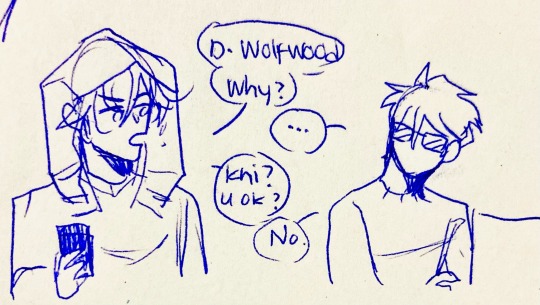
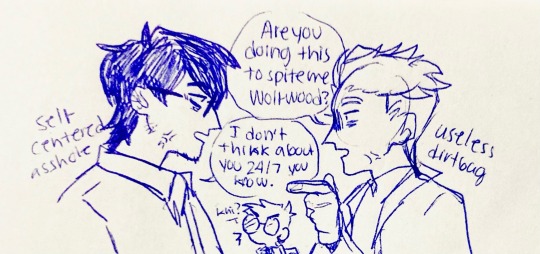

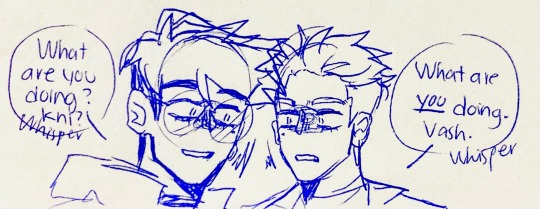
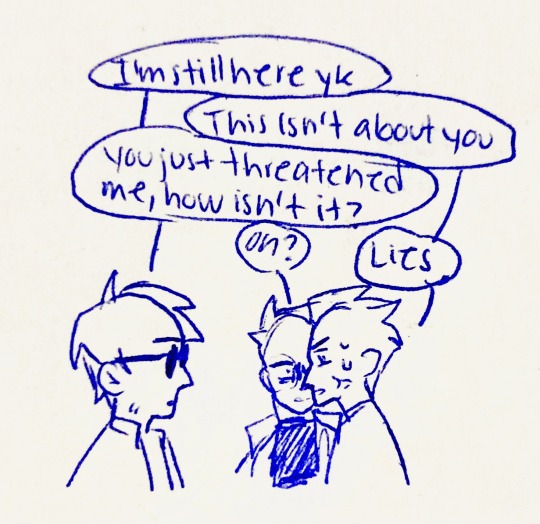
Part two of the thing and uuh also final one
Of this interaction. Because this is far from all I can give, my brain almost imploded from all the ideas
#after some very heated talks between the two brothers Vash said he would leave the house for a good time#suggesting they both needed time apart and Vash needed to learn how to live without Kni#very reluctantly Kni agreed (even if he didn’t V would have done it anyways) with the single condition of letting him know the general#details about his livings. the adress. who he was living with if he decided to room with someone and at least their phone number in case#of an emergency. Vash agreed to this and put the limit there bc Kni wanted to know more but he said no I won’t tell you about their life tf#WW who is comfortable living at the orphanage doesn’t find convenient commuting for over 2 hours everyday to get there#so he is looking for a place to stay. Vash mentioned wanting to share a rental home w someone to split the spendings#and so the stars aligned and they were already planning their moving four days after meeting each other#because that’s Vashwood for you#imagine the delight of being either WW or Kni and finding out about each other thanks to Vash again#neither of them want to tell Vash about what they think of each ither. Kni to keep some sort of face and ‘peace’ with his brother#and WW doesn’t want to leave a bad impression saying he was the cause that the brother of the guy he was planning to live with couldn’t see#with his right eye for a whole week. so they hate their guts and Vash doesn’t know the why though he can grasp a general idea.#but he always hits bullseye making both WW and Kni glance at each other silently with their eyes saying#“DID YOU TELL HIM?’’ ‘’DID-YOU-TELL HIM??’’#trigun#vash the stampede#nicholas d wolfwood#trigun stampede#vashwood#trigun fanart#vash#wolfwood#nicholas trigun#nai saverem#millions knives#Trigun Uni! AU#lenssi draws
174 notes
·
View notes
Text
i am forcing a gun my my friend's head and making them watch mob psycho and they just got to episode 5 and they're making notes after each episode. and their notes were a massive ramble about how much they hate teru. "god complex bitch boy" was their terminology.
they've got another thing coming.

#my partner overheard and was like YOU HATE TERU???!?!?!#and i was like we will convert them eventually it's okay.#we say nothing and see their reaction when his marge simpson hair emerges from the depths of hell#it's very funny cause they're also a light yagami hater#like we were watching dn and they were like I HATE HIM I HATE HIM SHUT UP DIE it was so entertaining#mp100#mob psycho 100#teruki hanazawa#teru mp100
27 notes
·
View notes